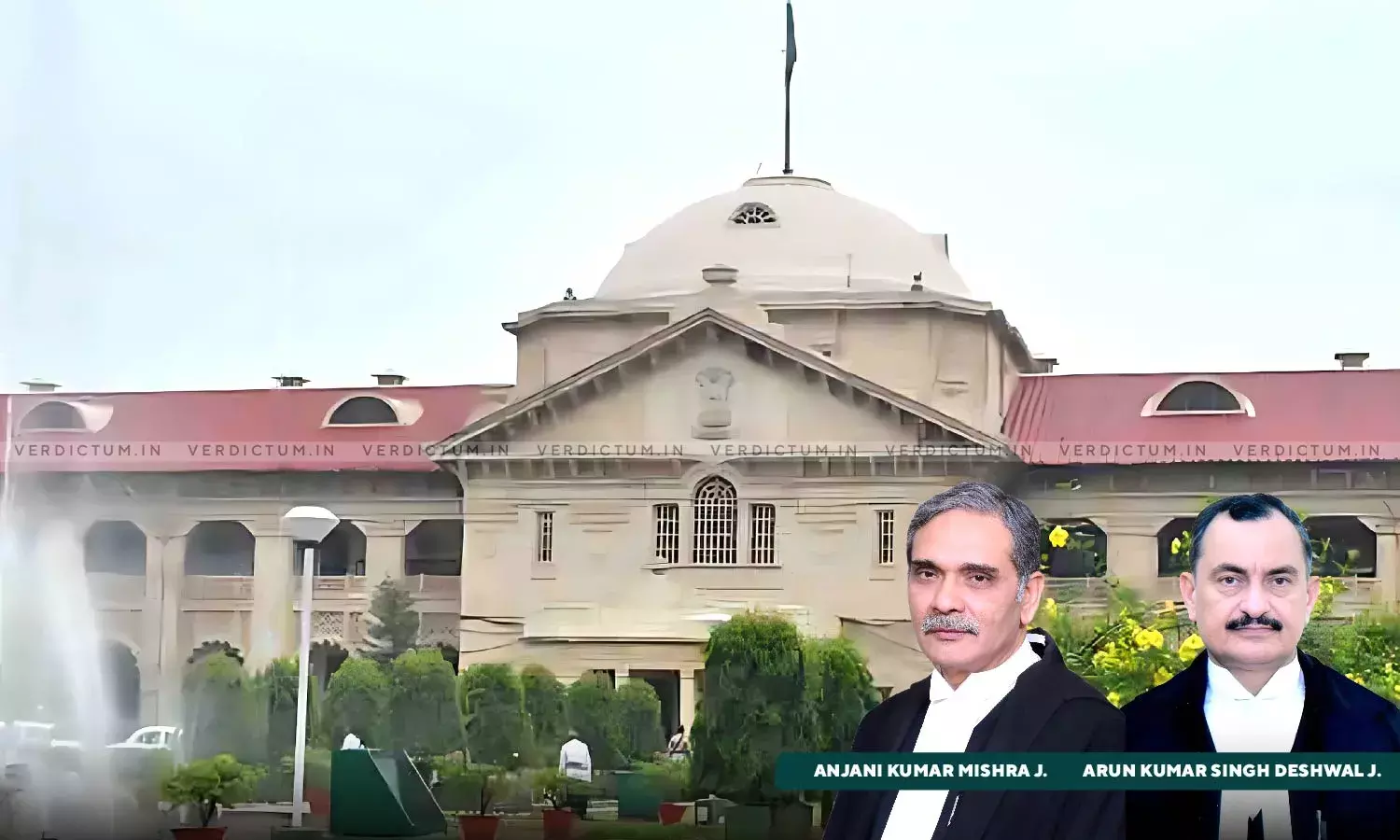Proceedings U/S 174A IPC Can Be Initiated Only Based On Written Complaint Of Court: Allahabad HC Quashes FIR
The Allahabad High Court held that Section 174-A IPC is a part of the offences mentioned in Section 195(1)(a)(i) Cr.P.C. for which a Court is barred from taking cognizance, except upon a written complaint by a Court.
The Court observed that if a court itself cannot take cognizance of the offence under Section 174-A IPC on the basis of a police report, then lodging the FIR under Section 174-A IPC would be futile, and will be against the provision of Section 195(1)(a)(i) Cr.P.C.
A Division Bench of Justice Anjani Kumar Mishra and Justice Arun Kumar Singh Deshwal observed “cognizable offence itself permits the police to arrest a person without warrant, therefore, registration of F.I.R. of cognizable offence itself will affect the personal liberty of a person protected by Article 21 of the Constitution of India.”
Advocate Akhilesh Srivastava represented the petitioners.
Petitioner had argued that cognizance under Section 174A cannot be taken except on the basis of a formal written complaint as required under Section 195 Cr.P.C.
The question for discussion before the Court was whether an FIR under Section 174A IPC is barred by Section 195 Cr.P.C.
Section 174A reads as follows: Non-appearance in response to a proclamation under section 82 of Act 2 of 1974.— Whoever fails to appear at the specified place and the specified time as required by a proclamation published under sub-section (1) of section 82 of the Code of Criminal Procedure, 1973 shall be punished with imprisonment for a term which may extend to three years or with fine or with both, and where a declaration has been made under sub-section (4) of that section pronouncing him as a proclaimed offender, he shall be punished with imprisonment for a term which may extend to seven years and shall also be liable to fine
To answer the question, the Court observed that “It is also clear from perusal of Section 195 Cr.P.C. that offences, punishable u/s 172 to 188 I.P.C. are cognizable by the court only when a complaint in writing is filed by public servant concerned or his subordinate.”
The Court discussed the legislative intent for including Section 174-A IPC in the category of offence mentioned in Section 195(1)(a)(i) Cr.P.C. The Section aims to protect an accused from unnecessary violation of personal liberty as police is already free to arrest and take action against such person under the proceeding of Section 82 Cr.P.C. The Court with respect to this held that “F.I.R. dated 17.7.2022, lodged by respondent No.3 in Case Crime No. 162 of 2023, under Section 174-A I.P.C., P.S. Lodha, District Aligarh, is hereby quashed. However, it is open to concerned court to file a written complaint against the petitioners u/s 174-A I.P.C. as per Section 195(1) Cr.P.C., if there is no legal impediment.”
Section 174-A IPC was inserted by the 2005 amendment between Sections 172 to 188, and therefore, is a part of the offences mentioned in Section 195(1)(a)(i) Cr.P.C. for which a court is barred from taking cognizance except upon a complaint by the court.
Subsequently, the High Court allowed the writ petition.
Cause Title: Sumit & Anr. v. State of U.P. & Ors. (2024:AHC:4023-DB)




